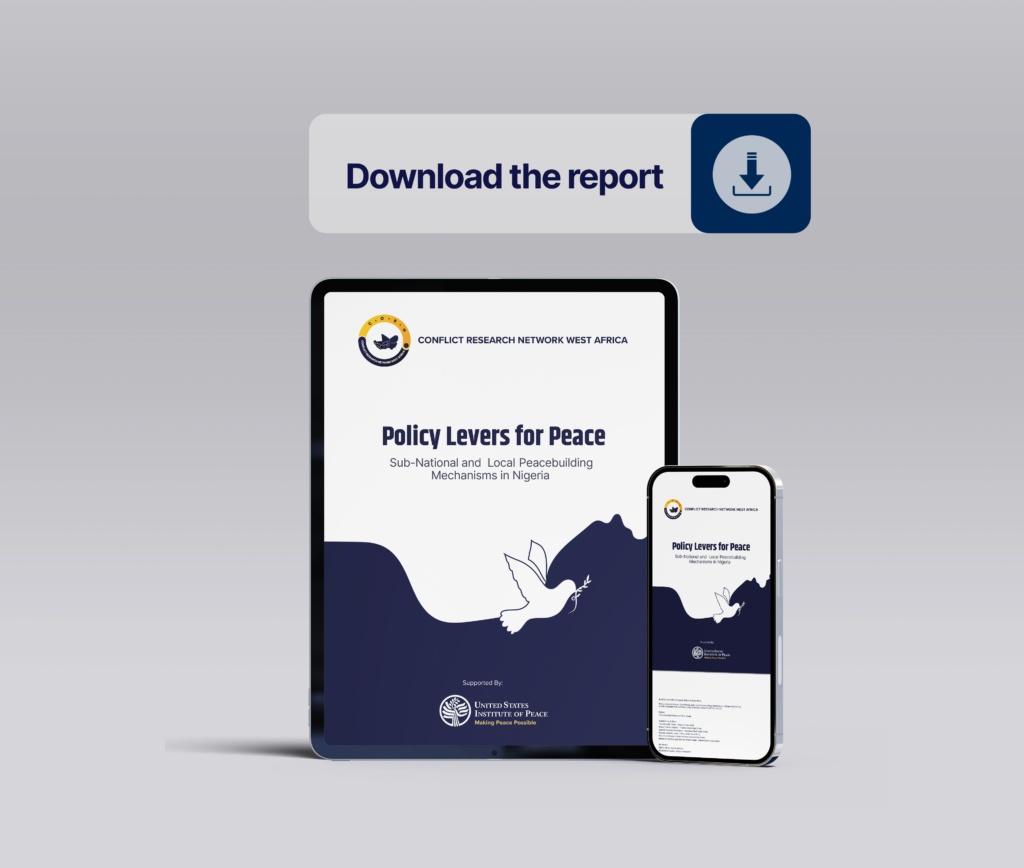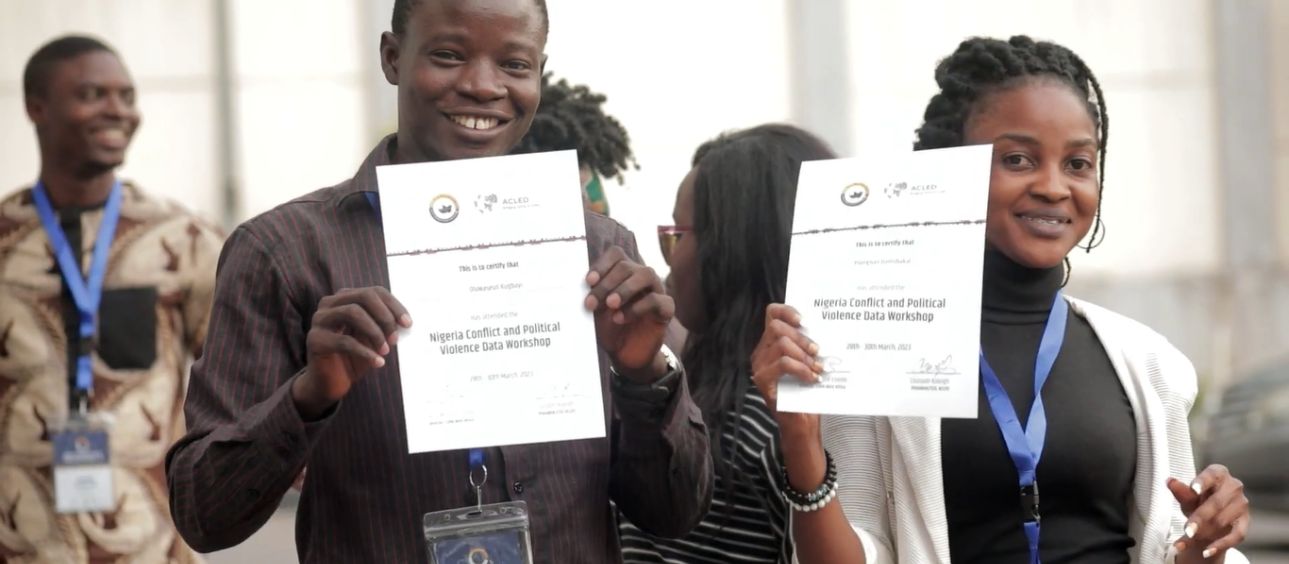New Research Report: Policy Levers for Peace: Sub-National and Local Peacebuilding Mechanisms in Nigeria


Ensuring Relative Peace and Stability in Nigeria
Nigeria’s peace and stability can be significantly enhanced through effective sub-national and local peacebuilding institutions. These institutions, though existing, have not been systematically documented or analyzed—until now. Conflict Research Network West Africa (CORN West Africa) has conducted extensive research documenting and analyzing the work of sub-national peacebuilding institutions and actors in six states, one representing each of Nigeria’s six geopolitical zones. The research identifies the mechanisms and processes of peacebuilding at sub-national and local levels, focusing on their emergence, key actors, challenges, and outcomes.
Key Findings
- Peace Institutions: Our research reveals the presence of peace institutions at both sub-national and local levels. These include both state and non-state entities. State institutions are formally established by the government, whereas non-state institutions often arise from traditional cultural institutions of ethnic communities and NGOs focused on peacebuilding. From these findings, we propose a comprehensive architecture for peacebuilding in Nigeria.
- Outcomes: Local peacebuilding institutions have successfully addressed various conflict drivers, ensuring peace in some communities. However, their effectiveness varies with the type of conflict. For instance, farmer-herder violence and armed banditry pose significant challenges. Despite this, there have been successful mediations leading to the de-escalation of tensions in certain communities. The most critical factor for success is early warning and timely action by these institutions.
- Challenges: Peacebuilding institutions face numerous challenges, including resource constraints, political interference, security threats, and lack of social cohesion. These institutions are under-resourced, limiting their operational capacity. Political interference often undermines their efforts, with politicians using these institutions for personal gain, thereby reducing their effectiveness. The neo-patrimonial nature of Nigerian politics significantly impacts the functioning of peacebuilding institutions.
- Challenges: Peacebuilding institutions face numerous challenges, including resource constraints, political interference, security threats, and lack of social cohesion. These institutions are under-resourced, limiting their operational capacity. Political interference often undermines their efforts, with politicians using these institutions for personal gain, thereby reducing their effectiveness. The neo-patrimonial nature of Nigerian politics significantly impacts the functioning of peacebuilding institutions.
- Conclusion and Recommendations: While peace institutions in Nigeria have made notable strides in conflict resolution and promoting stability, addressing the challenges they face is crucial. This requires sustained investment in peacebuilding, inclusive governmental policies, and enhanced collaboration among various actors in Nigeria’s peacebuilding architecture. By doing so, Nigeria can create a more peaceful and resilient society, fostering sustainable development and national cohesion.
You can download the report here.
Our Policy Brief: The policy brief provides succinct summaries of the research findings and policy recommendations for the Federal Government, State Governments, Donors and International Partners, Civil Society Organisations, and relevant stakeholders in Nigeria’s peacebuilding architecture. You can read our policy brief here.
This research was supported by the United States Institute for Peace.





